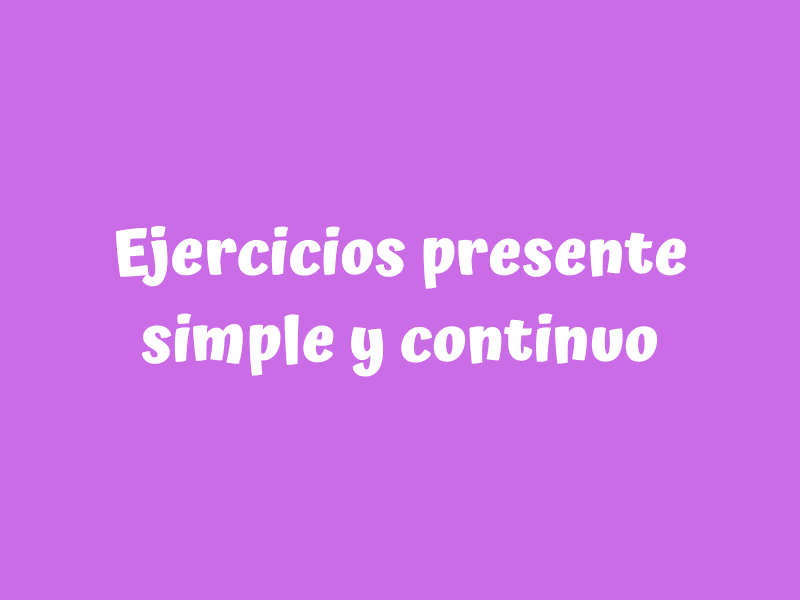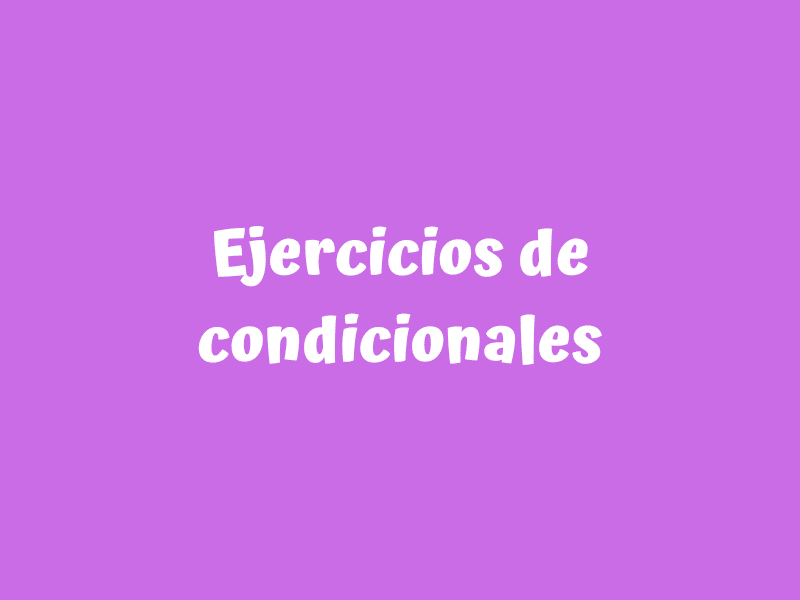¿Te cuesta diferenciar cuándo usar «will» y «going to» para hablar del futuro en inglés? ¡No te preocupes! Aquí tienes una serie de ejercicios prácticos que te ayudarán a dominar estas estructuras. Estos ejercicios están diseñados para que practiques de forma sencilla y divertida, reforzando tus habilidades y mejorando tu comprensión del uso correcto de «will» y «going to».
Si aún tienes dudas sobre cuándo usar cada uno de ellos, te recomendamos que visites nuestro artículo «Will y going to: El futuro en inglés».

Tabla de contenidos
EJERCICIOS DE WILL Y GOING TO
1. Selecciona la opción correcta (will o going to) para completar cada frase:
- Look at those clouds! It __________ rain soon.
- I forgot to call Sarah. I __________ call her right now.
- They __________ visit their grandparents this weekend; it’s already planned.
- She thinks he __________ pass the test, but she’s not sure.
- Be careful! You __________ spill your coffee.
- We __________ probably have pizza for dinner tonight.
- I __________ help you with your homework if you want.
- Watch out! That dog __________ bite you!
- We __________ travel to Italy next summer; we’ve already booked our tickets.
- I’m sure you __________ love this movie. It’s amazing!
- going to
- will
- are going to
- will
- will
- will
- will
- is going to
- are going to
- will
2. Indica si las siguientes frases son correctas o incorrectas en cuanto al uso de will y going to.
- She is going to probably visit us tomorrow.
- I think he will going to be late for the meeting.
- We are going to move to a new house next month.
- I will going to help you with your project.
- They’re sure it will rain tonight.
- He is not going to finish his homework on time.
- I promise I am going to call you later.
- She will going to take a taxi to the airport.
- The train is going to leave soon, hurry up!
- I will bake a cake for your birthday.
- Incorrecta (Correcto: She is probably going to visit us tomorrow.)
- Incorrecta (Correcto: I think he will be late for the meeting.)
- Correcta
- Incorrecta (Correcto: I will help you with your project.)
- Correcta
- Correcta
- Incorrecta (Correcto: I promise I will call you later.)
- Incorrecta (Correcto: She is going to take a taxi to the airport.)
- Correcta
- Correcta
3. Completa cada frase usando will o going to según corresponda.
- I forgot my keys! I __________ go back and get them.
- She __________ start a new job next week; everything is arranged.
- Look at that car! It __________ crash if it doesn’t slow down.
- I __________ call you as soon as I arrive.
- He __________ probably visit us during the holidays.
- We __________ have a barbecue this weekend; we’ve already bought all the food.
- She __________ study harder for the next exam.
- It’s getting late. I __________ take a taxi home.
- I __________ bake some cookies. Do you want some?
- They __________ not attend the meeting; they have another commitment.
- will
- is going to
- is going to
- will
- will
- are going to
- will
- will
- am going to
- will not (won’t)
4. Traduce las siguientes frases al inglés, usando will o going to según corresponda:
- Ella va a empezar un nuevo trabajo la próxima semana; ya tiene todo listo.
- ¿Puedes esperar un momento? Te traeré un vaso de agua.
- No hace sol, así que no creo que hará calor hoy.
- Cierra la ventana o las hojas se van a volar.
- ¿Qué vas a hacer este fin de semana?
- Estoy seguro de que ellos ganarán el partido.
- He decidido que voy a estudiar más para los exámenes.
- La película empieza a las ocho. Vamos a llegar tarde si no salimos ya.
- No estoy seguro, pero creo que él vendrá a la fiesta esta noche.
- El profesor va a explicar el tema mañana en clase.
- She is going to start a new job next week; she already has everything ready.
- Can you wait a moment? I will bring you a glass of water.
- It’s not sunny, so I don’t think it will be hot today.
- Close the window or the papers are going to fly away.
- What are you going to do this weekend?
- I’m sure they will win the match.
- I’ve decided that I’m going to study more for the exams.
- The movie starts at eight. We are going to be late if we don’t leave now.
- I’m not sure, but I think he will come to the party tonight.
- The teacher is going to explain the topic tomorrow in class.
Practicar la diferencia entre will y going to te ayudará a mejorar tu nivel de inglés y sonar más natural al hablar sobre el futuro. Recuerda: usa «will» para decisiones espontáneas y predicciones sin evidencia, y «going to» para planes decididos y predicciones con evidencia visible.
Si has tenido dudas a la hora de resolver estos ejercicios de will y going to, recuerda que tienes toda la teoría explicada en nuestro artículo «Will y Going to: El futuro en inglés«.



